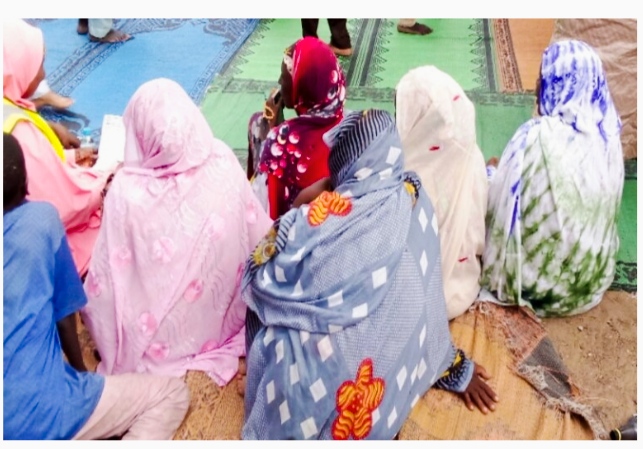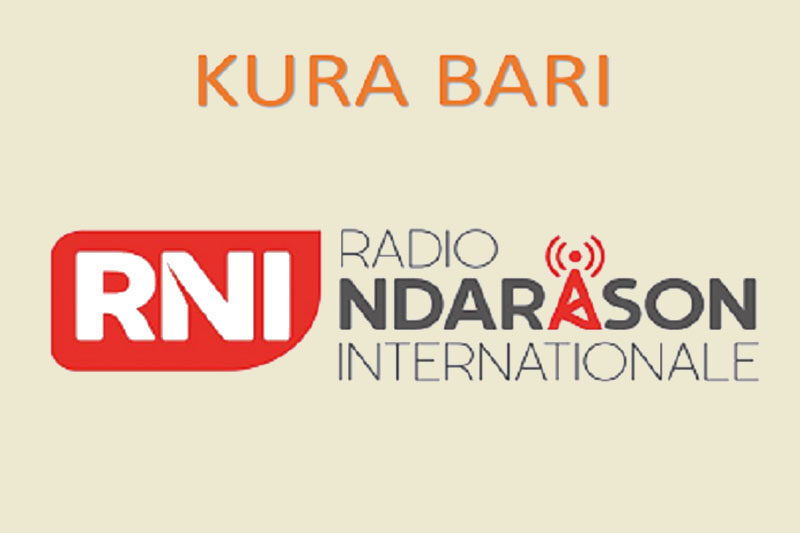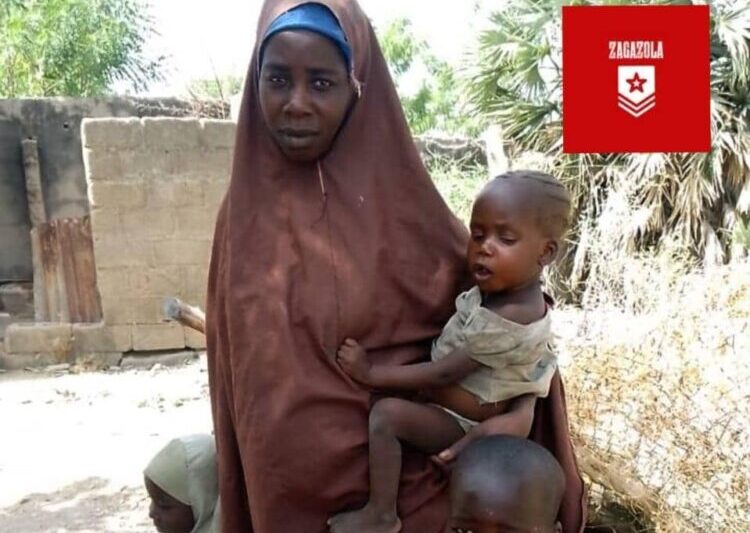A major drive to vaccinate children against polio began in Maiduguri, Borno State, on Thursday, September 9, following growing concern by the federal government over the outbreak of vaccine-derived polio type 2 (cVDPV2) in 13 states in Nigeria.
The drive – in collaboration with international aid organisations – is aimed at getting all children, five years old and younger, vaccinated to stop the spread of the viral disease which affects the spinal cord causing muscle weakness and paralysis.
The poliovirus enters the body through the mouth, usually from hands contaminated with the stool of an infected person. Polio is more common in infants and young children and occurs under conditions of poor hygiene.
But vaccinators – doing house-to-house visits – had come across a barrier not previously considered or encountered. The parents of babies and young children appeared to believe there should be some “incentive” – such as sweets, Indomie noodles and sachets of milk – to be given before they allowed vaccinators to do their job.
Residents said in previous vaccination campaigns vaccinators had brought treats for the children and now, because of the lack of incentives, the parents had turned away the mostly volunteer vaccinators from their houses.
Many residents of Limanti Ward in Maiduguri refused the vaccinators entrance because there was no “plus” attached to the campaign which they claimed was “untraditional”.
Ummi Babakura, a nursing mother from Budum told RNI reporter Nana Hadiza Mustapha that she had refused to allow her children to get vaccinated because there was no incentive to encourage her to do so.
“The children cry when they see vaccinators coming into our homes. But they soon stop if they are given sweets, Indomie noodles and sachets of milk. But the vaccinators did not bring any.”
She said that her children were not vaccinated because there were no incentives which would have motivated them to stop crying. The children should not be forced to have the vaccine.
“Had the vaccinators come along with incentives as they had done in the past, the children would happily get vaccinated and all the parents would support the campaign,” she said.
Hauwa Mohammed told RNI that her children would not be vaccinated without the incentives of sweets and milk because the last time they were vaccinated they had received these.
“The vaccine is bitter and the sweets and milk take away the bitterness. It’s a case of no incentives, no vaccination,” she said.
Her children needed to be enticed otherwise they would object to vaccinations being carried out, she said.
Mohammed confirmed that parents would not force their children to be vaccinated unless there were incentives.
“You can see how many parents have not allowed their children to be vaccinated because there were no enticing gifts,” she said.
Abubakar Shettima, who spoke for the Limanti Ward, and who is one of the supervisors of the polio vaccination drive, said the high level of rejection of the campaign was because of the lack of incentives. He said in previous campaigns the vaccinators had arrived with sweets and milk or other treats but this time they were encountering problems in the community because there were no incentives.
He said only a third of the residents had allowed their children to be vaccinated so far.
ReliefWeb, the humanitarian information service provided by the United Nations Office for the Coordination of Humanitarian Affairs (OCHA), said in a report published in May that while the programme managers, health workers and polio survivors had been celebrating the wild polio virus-free status in the country, other forms of the poliovirus still existed.
It said cases of vaccine-derived polio, caused by low and infrequent immunisation, were still being recorded.
Circulating vaccine-derived polio was rare, it said, but it posed risks to children everywhere because of its highly infectious nature. Nigeria had been experiencing outbreaks since 2018.
Vaccines provided the most effective protection for children. The novel oral polio vaccine (nOPV2) was the best protection to prevent infection and stop the spread of poliovirus.
The World Health Organisation (WHO) recommended regular immunisation, at least twice for children, to reduce the risks of infection. Two drops of the vaccine produced a stronger immune response, it said.
On August 25, 2020, the WHO Africa region was certified polio free by the Africa Regional Certification Commission for Polio Eradication (ARCC), as Nigeria achieved the wild polio virus-free status.
In a WHO report on Saturday, September 11, professor Oyewale Tomori, a leading virologist who helped spearhead Nigeria’s effort to kick out polio from the country, said the outbreak of cVDPV2 “is telling us that we have won a battle, but the war is still on”.
He said there were still many vulnerable children around who had either not received their polio vaccination or were insufficiently protected.
Routine immunisation had to remain high, he said, and it was imperative that every effort was made to fully vaccinate all children.
The Borno State incident manager and acting executive director of the State Primary Health Care Development Board, Dr Aliyu Shettima, said the systematic engagement of community informants from insecure areas should continue so as to conduct active surveillance to improve polio eradication in the state.
The Centers for Disease Control and Prevention (CDC) said the vaccine-derived poliovirus could be spread more easily to people who were unvaccinated and who came into contact with the stool or respiratory secretions, such as from a sneeze, of an infected person.
The Global Polio Eradication Initiative (GPEI) said in its weekly country update on September 9 that 18 cases of cVDPV2 were reported: nine in Borno, one each in Gombe, Katsina, Taraba and Yobe, two in Jigawa and three in Kano. It said t 141 cases had been reported this year in Nigeria. Only eight cases had been reported in 2020.








